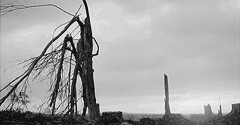Abstract
This paper explores current Mexican President Enrique Pena Nieto’s 2013 public education reform through ethnographic engagement, archival research, and interviews in Mexico City and Guerrero, Mexico. By May 2013, the National Coordination of Education Workers’ (CNTE)—the primary education reform opposition movement—had gained national traction and more than 40,000 educators from various states indefinitely relocated to Mexico City’s zocalo. In this paper, the author presents an account of the social conditions of policy formation and experiences of violence in the lives of teachers, legislators, political advisors, students, and community members, engaged in shaping education and opposing the reform. An anthropological approach to policy and violence embraces the analytical horizons of a world that prompts us to consider such large-scale phenomena as economic crises, neoliberal policies, and forced disappearances. A focus on dispersed communities allowed the author to explore the ways in which people engage, change, and experience the violence of policy across fluid borders, instead of how policy impacts presumably bounded communities.
This Paper was awarded the "Society for Urban National and Transnational/global Anthropology graduate student paper" prize in 2014.
Acknowledgements
Fieldwork was conducted with support from the Violence and Conflict Laboratory and CIESAS Mexico City.
Creative Commons License

This work is licensed under a Creative Commons Attribution-No Derivative Works 4.0 License.
Recommended Citation
Sherry, Ashley E.
(2015)
"Studying Policy Through Violence: The social conditions of education reform in Mexico,"
Landscapes of Violence: Vol. 3:
No.
3, Article 4.
Available at:
https://scholarworks.umass.edu/lov/vol3/iss3/4
